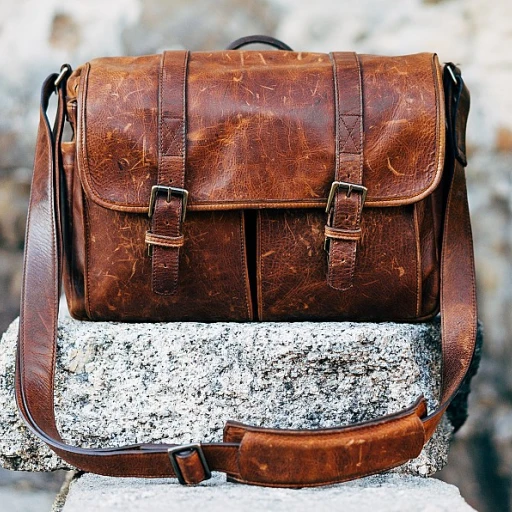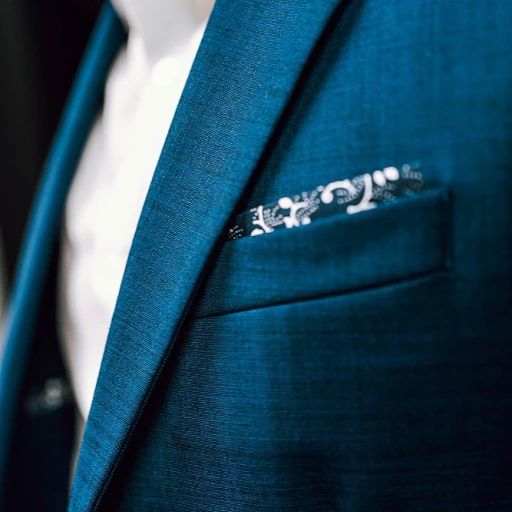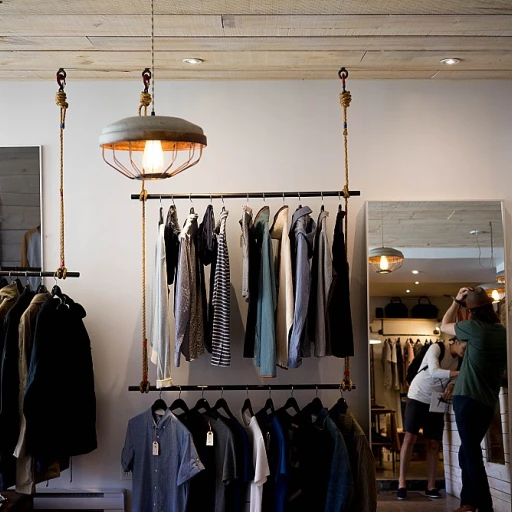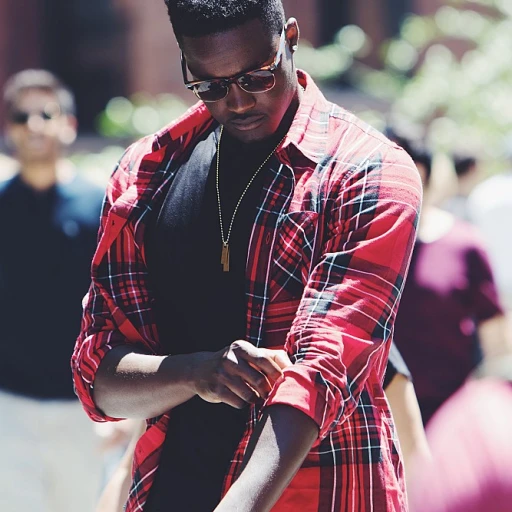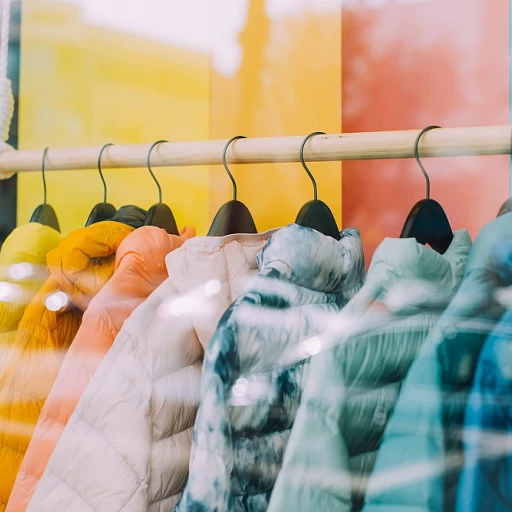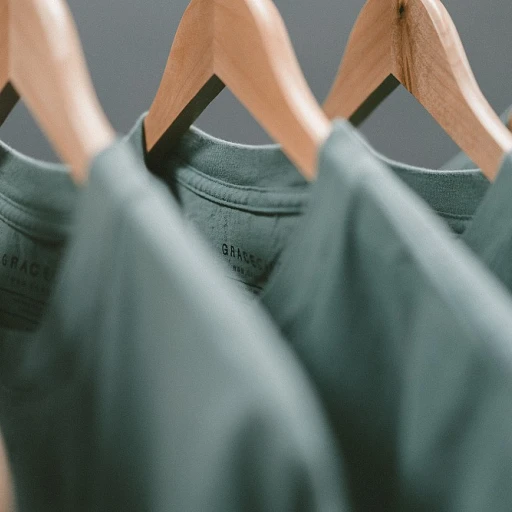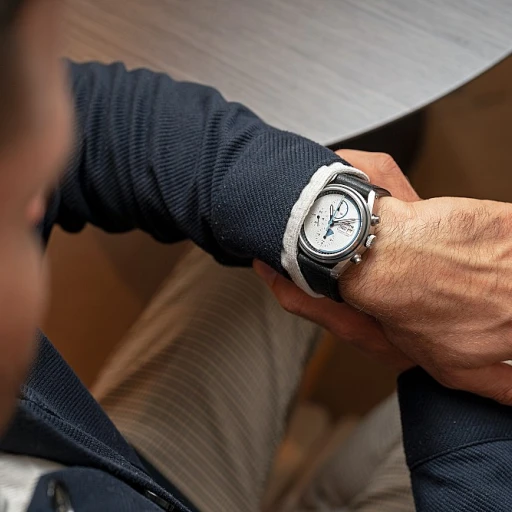Sustainable Sneakers: More Than a Trend?
When Style Meets Sustainability: The Rise of Eco-Conscious Sneakers
In the bustling world of men's fashion, one term that's stomping the runways with an eco-friendly footprint is ‘sustainable sneakers’. Once a niche market, these environmentally-minded kicks are now leading the charge in the fashion industry. Statistics from a recent market analysis reveal a significant consumer shift, with sustainable footwear sales having climbed by an impressive 20% in the past two years. This surge demonstrates that sustainable sneakers are no fleeting fad but a mainstay in the making.
Fashion-forward men are not just choosing style over substance; they're investing in shoes that promise both. Brands that have pioneered the use of recycled materials, organic cotton, or vegan leather are seeing a tangible impact on their bottom line. For instance, a pioneering brand in this space has reported a 35% increase in sales following the launch of a line made with recycled ocean plastic. These figures are a testament to the growing consumer consciousness and the appetite for products that don't just look good but do good.
Building a Legacy with Every Step: The Evolution of Men's Fashion Footwear
Menswear, particularly men's casual footwear, is undergoing a radical transformation. The traditional paradigm of style at the expense of sustainability is being challenged as modern men seek out footwear that aligns with their values. As a leading fashion analyst, I've witnessed a decisive shift towards sustainable practices in the industry, with innovative brands launching sneakers that are as stylish as they are eco-conscious.
Quotes from industry leaders echo this sentiment, with a prominent CEO stating, "Sustainable fashion is not just a responsibility, it's a business imperative in today's world." The consumer drive for sustainability has not gone unnoticed, resulting in a wave of change that's culminating in the production of shoes that prioritize the planet without compromising on panache.
The Green Sole: Materials Making a Difference
Eco-Conscious Material Innovation in Men's Footwear
When it comes to sustainable sneakers, one cannot overstate the importance of eco-friendly materials. Traditionally, sneaker production has relied heavily on synthetic rubbers and plastic derivatives, contributing to environmental degradation. Now, brands are turning to biodegradable fabrics, recycled plastics, and organic cotton to minimize the ecological footprint. According to a report by Grand View Research, the global eco-friendly footwear market size was valued at USD 7.69 billion in 2020 and is expected to expand at a compound annual growth rate (CAGR) of 5.8% from 2021 to 2028, indicating significant consumer interest and market potential.
The Alchemy of Natural and Recycled Elements
Leaders in the sustainable sneaker movement are pioneering the integration of materials like cork, algae foam, and responsibly sourced wool. Notable are innovations such as soles crafted from recycled rubber, which offer a dual advantage: reducing waste and providing the bounce and cushioning needed for ultimate comfort. Statistics from the American Chemistry Council reveal that the recycling rate for rubber and leather footwear components is on the rise, showcasing a shift in material usage that aligns with consumer expectations for sustainability without compromising quality.
The Luxurious Feel of Ethically-Sourced Components
Beyond the eco-friendly aspect, there's an emerging luxury market for sustainable men's casual footwear. Brands are not just selling a product; they're offering an experience of luxury with clear conscience. High-grade, ethically-sourced leather from tanneries with stringent environmental standards are becoming a staple in sustainable men's footwear. A survey by Nielsen showed that 73% of global millennials are willing to pay more for sustainable goods, emphasizing the link between luxury and sustainability as a driving force for sales in the fashion industry.
- Biodegradable fabrics reduce the environmental impact after disposal.
- Recycled plastics turn waste into wearable fashion.
- Organic cotton supports sustainable farming practices.
- Cork and algae foam provide innovative alternatives to traditional sole materials.
- Responsibly sourced wool ensures animal welfare and reduces carbon footprint.
The Competitive Edge of Comfort in Eco-Friendly Designs
Leading the Charge with Cushioned Conscious Choices
The shift towards eco-friendly footwear has not only brought sustainable materials to the forefront but also cast the spotlight on the undeniable comfort that these sneakers offer. When it comes to casual footwear, men are increasingly opting for shoes that provide a seamless blend of style and all-day wearability. In fact, statistics indicate that the global eco-friendly shoes market size was valued at USD 7.69 billion in 2021 and is expected to expand at a compound annual growth rate (CAGR) of 6.3% from 2022 to 2030 (Grand View Research). This growth is undoubtedly fueled by the competitive edge that comes from the fusion of ethical manufacturing and unparalleled comfort.
Innovation Meets Ergonomics in Eco-Friendly Sneaker Design
Let's dissect the anatomy of sustainable sneakers that are taking over the casual footwear arena. Designers are pioneering with renewable resources, such as organic cotton, natural rubber, and recycled plastics, which inherently provide a level of comfort far surpassing traditional materials. A study by the MIT Sloan School of Management found that businesses classified as 'innovation-driven' were more likely to use sustainability as a criterion in design (MIT Sloan). This is clearly reflected in the ergonomic designs of eco-friendly sneakers that cater to the fashion-forward man without compromising on comfort or environmental principles.
The Synergy of Style, Sustainability, and Supreme Comfort
Combining form and function, sustainable sneaker brands are not only tackling the environmental issues but they are also maximizing comfort by integrating advanced shoe technologies. The use of memory foam insoles, padded collars, and breathable fabrics contributes to the overall appeal of these sneakers. Indeed, customer reviews frequently highlight the 'walking on clouds' sensation attributed to these innovative designs. Insights from Common Sense Media reveal that 78% of consumers are more likely to purchase a product that is labeled as eco-friendly.
- Memory Foam Insoles: Providing arch support and adapting to foot shape.
- Padded Collars: Reducing heel friction and enhancing ankle comfort.
- Breathable Fabrics: Preventing over-heating and maintaining a healthy foot environment.
As demand for sustainable sneakers rises among environmentally conscious consumers, the trend toward comfort-driven designs is expected to continue. Substantiating this claim, Global Industry Analysts Inc. forecast that the global market for casual shoes will reach US$ 58.4 billion by 2027, with comfort as a leading purchasing factor (Global Industry Analysts Inc.). Thus, it's clear that men's casual footwear is being revolutionized by sustainable sneakers that don’t shy away from offering indulgent comfort alongside eco-friendly attributes, thereby setting a new standard in the footwear industry.
Cost vs. Value: The Price of Saving the Planet
Evaluating the Investment in Eco-Conscious Footwear
When considering the acquisition of sustainable sneakers, the discourse inevitably pivots to the juxtaposition of short-term outlay versus long-term savings, not just in monetary terms, but also in the ecological footprint. Sustainable fashion statistics suggest that consumers are progressively leaning towards ethical fashion, with a recent report indicating that the market for eco-friendly footwear is projected to grow at a CAGR of 7.2% from 2020 to 2027 (Grand View Research, 2020). Acknowledging this trend, the modern sartorial enthusiast weighs the cost of sustainable sneakers against their environmental impact, and the longevity these shoes offer.
The Longevity Lens: A Cost-Effective Analysis
- Upfront Investment vs. Durability: Eco-friendly sneakers may come with a higher price tag due to the sustainable materials and ethical labor practices. However, they often outlast their conventional counterparts.
- Cost Per Wear: By calculating the cost per wear – that is, the price of the shoes divided by the estimated number of wears – fashion-savvy men can discern the true value sustainable sneakers provide over time.
Moreover, as the circular fashion economy gains momentum, with recycling and upcycling becoming more accessible, these sneakers promise a reduction in waste, ultimately contributing to the circularity movement. A seemingly steep price can be reframed as a conscientious investment, securing a spot in the wardrobe of the environmentally aware gentleman.
Aligning Budgets with Eco-Values
‘The price of anything is the amount of life you exchange for it,’ states Henry David Thoreau. This resonates particularly with the man who places a premium on sustainable living. In aligning one’s budget with eco-values, the cost becomes more than a figure; it represents a choice that reflects personal values and global responsibility. The question remains not about whether one can afford the luxury of sustainable footwear, but whether one can afford to overlook the imperative of sustainability.
In the realm of sustainable sneakers, quality and ethics command a price that goes beyond mere dollar value, echoing the notion that when we invest in sustainability, we are investing in the future. While the market evolves, competition among sustainable brands will lead to price variations, offering economically viable options for every style enthusiast seeking to make a positive impact. In this sense, the sustainable sneaker revolution is a remarkable blend of style meeting substance, echoing the adage that good things do, indeed, come to those who wait—for the perfect pair of ethically crafted sneakers to hit the shelves.
-large-full.webp)
